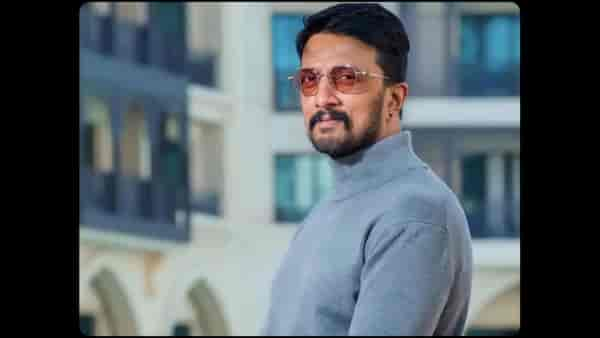Kiccha Sudeep: Narratives have to be to the point, with no unnecessary extra elements
The Kannada superstar’s idea of filmmaking bodes well for #Kiccha46

Kiccha Sudeep
Last Updated: 05.11 PM, May 29, 2023
In July last year, when OTTplay had met Kannada superstar Kiccha Sudeep to talk about his film Vikrant Rona, he had spoken at length about why brevity in story-telling is the need of the hour and that audiences today do not have the patience for routine commercial film tropes. As the actor prepares for his next, tentatively called #Kiccha46, we believe that he’s used this yardstick while measuring if debutant director Vijay Karthikeyan’s script is worth being a part of.
Sudeep had told us that these days, everyone with a mobile streaming device is an editor. According to him, there is literally no point in unnecessary songs and scenes when something can be conveyed with bare minimum effort. “We need to stick to the point in our narratives; why do we have a song or a massive scene to convey a small message? Earlier, story-telling was unnecessarily dragged along with an elaboration of things. Today, audiences are editors. If you watch a film on your personal gadget, you may skip ahead by 10-20 seconds every now and then? If there’s a song and you are not inclined to watch it, you may fast forward it. Similarly, if there is a fight sequence, if it is interesting, you may watch it, else it has the same fate and you skip ahead. In the end, you would have seen a two-and-a-half-hour film in far less time and yet understood the entire story,” said Sudeep.
The actor then went on to explain why an audience would want to skip ahead to certain parts. “It’s not that there were no good-looking faces on screen. The moment a scene starts, you know, more or less, how it will unfold because you are so exposed to global content. And yet, after seeing the film, you may recommend it as a must-watch to someone else. The next person may have a different watching experience, but both of you have understood the film. That is the speed at which people need to tell their stories at. You can’t afford to have unnecessary things; that’s what cinema is about today. This kind of filmmaking is suiting me a lot. When everyone is editing, why don’t we do it ourselves?” he asked.

 Premium
Premium